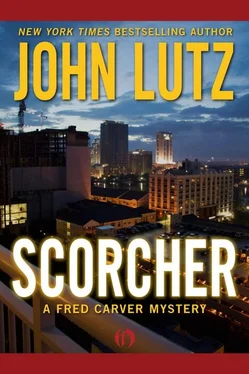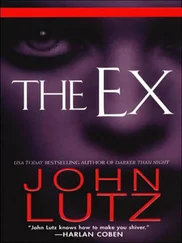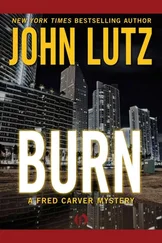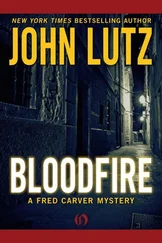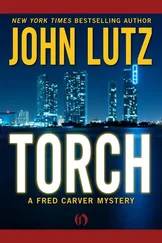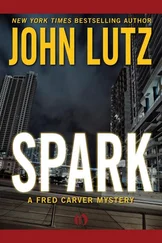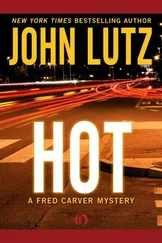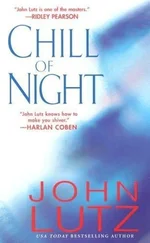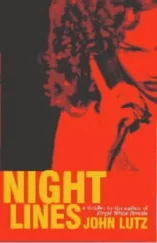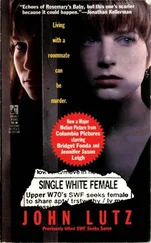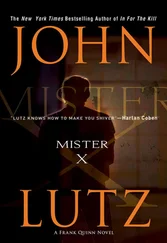John Lutz - Scorcher
Здесь есть возможность читать онлайн «John Lutz - Scorcher» весь текст электронной книги совершенно бесплатно (целиком полную версию без сокращений). В некоторых случаях можно слушать аудио, скачать через торрент в формате fb2 и присутствует краткое содержание. Жанр: Триллер, на английском языке. Описание произведения, (предисловие) а так же отзывы посетителей доступны на портале библиотеки ЛибКат.
- Название:Scorcher
- Автор:
- Жанр:
- Год:неизвестен
- ISBN:нет данных
- Рейтинг книги:5 / 5. Голосов: 1
-
Избранное:Добавить в избранное
- Отзывы:
-
Ваша оценка:
- 100
- 1
- 2
- 3
- 4
- 5
Scorcher: краткое содержание, описание и аннотация
Предлагаем к чтению аннотацию, описание, краткое содержание или предисловие (зависит от того, что написал сам автор книги «Scorcher»). Если вы не нашли необходимую информацию о книге — напишите в комментариях, мы постараемся отыскать её.
Scorcher — читать онлайн бесплатно полную книгу (весь текст) целиком
Ниже представлен текст книги, разбитый по страницам. Система сохранения места последней прочитанной страницы, позволяет с удобством читать онлайн бесплатно книгу «Scorcher», без необходимости каждый раз заново искать на чём Вы остановились. Поставьте закладку, и сможете в любой момент перейти на страницу, на которой закончили чтение.
Интервал:
Закладка:
After the funeral he said his good-byes, shaking hands and accepting condolences. But he was curiously without emotion, cut off from what was happening. A visitor from another world. His mind had disassociated itself from the pain and would face it little by little, as time passed. For now he’d concentrate on finding the man who burned people.
Laura and Devine invited him to come to the apartment, where some of the relatives were going to gather and have something to eat, but Carver refused. The day felt more like a beginning to him than an end. He had things to do.
He’d arranged a layover in Chattanooga on his way home so he could talk to the Gepmans, the couple who’d witnessed the Pompano Beach murder.
After a connecting flight from Nashville, he found himself in a sputtering rental car in Chattanooga, studying a street guide and trying to find the Gepmans’ house on Starlight Lane.
Chattanooga was a clean and compact city huddled at the base of Lookout Mountain, where a Civil War battle had been fought, and few people outside Tennessee remembered which side had won. Said something about battles, Carver thought. He drove away from the looming, misted mountain, following his map.
Starlight Lane was north of the downtown area, a cul-de-sac lined with similar low frame houses. The Gepmans’ home was painted lime green, with dark green shutters, and was almost completely hidden behind a large magnolia tree.
Carver parked the car, then made his way up the walk, ducking the tree’s branches with their thick, waxy leaves. He used the tip of his cane to ring the doorbell and heard its muffled chimes deep in the house’s interior, like the bell of a ship far out at sea.
He’d thought about phoning the Gepmans to make sure someone was home, but he’d rejected the idea. It was better to talk to people cold, without them having a chance to form preconceptions. He was hoping, after the passage of time and a change in locale, that one of the Gepmans might remember something they hadn’t told the police in Pompano Beach. Memory was unpredictable; time passed and hidden moments sometimes bobbed to the surface.
Mrs. Gepman opened the door. She was a tanned brunette about thirty, with a full and well-proportioned figure and dark, inquisitive eyes. She was wearing blue shorts and a red blouse with brown stains on it. She smelled like peanut butter. “I’m awful busy,” she said with a smile. “So if you’re selling something or taking a survey. .”
“My name’s Fred Carver, Mrs. Gepman. I’m not taking a survey, but I’d like to ask some questions. My son was killed in Florida. The way you saw somebody killed.”
That found a nerve and the smile twisted into a grimace on her soft, handsome features. “I’m Margaret Gepman, Mr. Carver. C’mon in. You’ll have to excuse me, though; I’m feeding the kids right now.”
Carver stepped into a small, neat living room with glass-topped end tables and lots of potted plants. Above the sofa was a vast print of a snowy landscape, bought more for size and color coordination than for artistic merit. A Bible lay open on a tall walnut dictionary stand in a corner. The air-conditioning was humming away softly; it was cool in there. “Is your husband home?”
“Jerry? Sure. He’s in his royal chamber. This way.”
He followed her from the tranquil neatness of the living room into a large den that was a riot of toys and children’s books scattered over the floor and furniture. A chunky wooden truck large enough for a small child to ride rested on its side near the sofa. Identical bright blue plastic parts of some kind of construction toy were spread haphazardly over the oval area rug. They were all the diameter of a pencil, about half as long, and had tiny protrusions at each end so they could be linked together at angles. They were mixed in with spilled pieces of what looked like an impossibly difficult jigsaw puzzle.
In the middle of all this, leaning back in kingly repose in a brown vinyl recliner and munching a grilled cheese sandwich, was Jerry Gepman. He was dressed as informally as his wife, in ragged jeans and a plaid, short-sleeved shirt. He had a stomach paunch and a simple, friendly face. He looked like the kind of guy who’d command a Boy Scout troop until he was seventy.
“This is Mr. Fred Carver,” Margaret Gepman said. She had dimples not when she smiled but when she talked. “He wants to ask us some more about what happened in Florida. It concerns his son.”
“Sure.” Around a bite of cheese sandwich.
A shrill scream cut through the house, like a fingernail and blackboard demanding something at high volume.
Margaret Gepman shrugged. “I’m sorry, I gotta go feed the kids or they’ll tear the place asunder.”
“How many do you have?” Carver asked, wincing as another scream raised the hair on the backs of his hands.
“Three. All under nine years old. We went to Florida thinking we were going to get away from all the stress, left them with their grandparents. And then. .”
“I been to Vietnam,” Jerry Gepman said, “seen me some things. But I tell you, nothing like what was done to that fella in the shop. All blistered and black. Damned piece of bacon overcooked.”
“This is Mr. Fred Carver, concerning his son ,” Margaret Gepman reiterated, as if Gepman were slow-witted. He was the dominant force in the household, but she was a guerrilla who sniped. It was a pattern a lot of marriages fell into. “He’s the father of that poor boy that died the same way in Fort Lauderdale.”
“Oh, Lord, sorry,” Gepman said leaning forward in his chair. It made a ratchety, grinding sound and conformed to his new position. “I mean, it must be rough.”
“It is,” Carver said. “What I want to ask you is, did either of you notice a dark blue Ford with a white top in the area of the shop?”
“Not that I can recall,” Margaret Gepman said immediately.
But Gepman wasn’t so quick to deny. He rubbed his unshaven chin with obvious pleasure; office worker relishing playing slob during a weekend with the family. “Might have been,” he said. “Not a Ford, though. I do recall seeing a big blue Lincoln parked a ways down the street. I remember admiring it before we went into the shop, because it was in such good shape. Except for a dinged right front fender. It might not have stuck in my mind, only restoring cars is my hobby. Working on a ’sixty-five Mustang now.”
Carver felt an excitement coil in him. An older Lincoln and late-model Ford could be mistaken for each other. They shared the same basic body style, squared-off and distinctive. And one in good shape other than the dented fender might be assumed to be newer than it was. “Do you remember what year and model?” he asked.
“Oh, it was a two-door-I remember that. But I honestly didn’t pay much attention to the year; they didn’t change much for a while there in the late seventies, early eighties, you know. It did have a white vinyl roof; I’d bet on that. I noticed it was starting to peel a little around the rear window. Vehicle was overall in darn fine condition, though.”
Margaret Gepman wanted to stay and listen to the conversation, but something fell in the kitchen and there was the sound of glass breaking. “Damn!” she said. She hurried from the den, her high, wide hips swaying rhythmically as she ran.
Jerry Gepman shook his head and grinned. His kids would do nothing really wrong, ever. “They keep the wife hopping,” he said, as if that were the test of quality in a child. “All boys,” he added, beaming.
Carver swallowed.
“Hey, I’m sorry,” Gepman said. “I forgot.”
“That’s okay,” Carver said. The thrust of anguish that had sliced into him subsided. The lump in his throat went away. “Was the Lincoln still there when you came out of the shop?”
Читать дальшеИнтервал:
Закладка:
Похожие книги на «Scorcher»
Представляем Вашему вниманию похожие книги на «Scorcher» списком для выбора. Мы отобрали схожую по названию и смыслу литературу в надежде предоставить читателям больше вариантов отыскать новые, интересные, ещё непрочитанные произведения.
Обсуждение, отзывы о книге «Scorcher» и просто собственные мнения читателей. Оставьте ваши комментарии, напишите, что Вы думаете о произведении, его смысле или главных героях. Укажите что конкретно понравилось, а что нет, и почему Вы так считаете.
